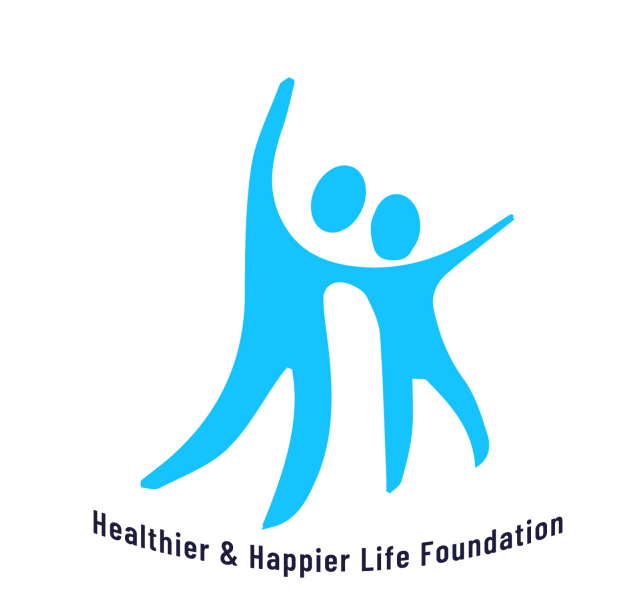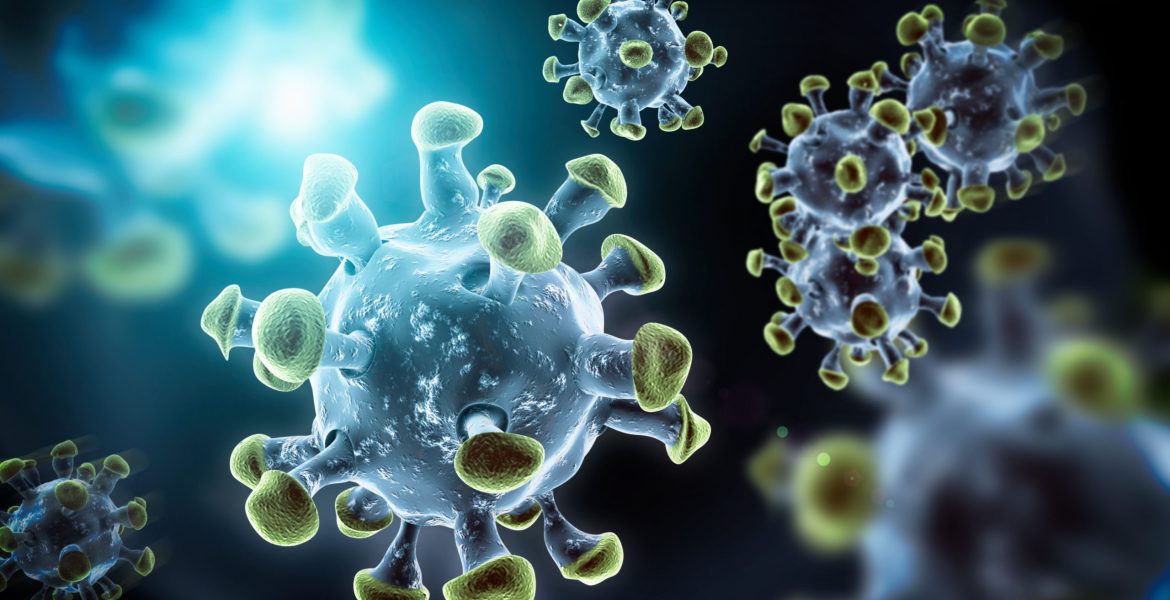By Dominic D. Gadeka

What is Coronavirus (COVID-19)?
- Coronaviruses are a large family of viruses which may cause illness in animals or humans.
- In humans, they cause respiratory infections ranging from the common cold to more severe diseases such as Middle East Respiratory Syndrome (MERS) and Severe Acute Respiratory Syndrome (SARS).
- COVID-19 is the infectious disease caused by the most recently discovered coronavirus.
- This new virus and disease were unknown before the outbreak began in Wuhan, China, in December 2019.
What are the symptoms of COVID-19?
The most common symptoms of COVID-19 are:
- Fever, tiredness, difficulty breathing and dry cough.
Some patients/individuals may have:
- Aches and pains, nasal congestion, runny nose, sore throat or diarrhea.
- Most people (about 80%) recover from the disease without needing special treatment.
- Around 1 out of every 6 people who gets COVID-19 becomes seriously ill and develops difficulty breathing.
Older people, and those with underlying medical problems like high blood pressure, heart problems or diabetes, are more likely to develop serious illness.
- The virus can spread from person to person (direct contact) through small droplets from the nose or mouth which are spread when a person with COVID-19 coughs or exhales.
- Through contaminated objects or surfaces, then touching the eyes, nose or mouth.
Can COVID-19 be transmitted through the air?
- Studies to date suggest that the virus that causes COVID-19 is mainly transmitted through contact with respiratory droplets rather than through the air.
Can CoVID-19 be caught from a person who has no symptoms?
- The main way the disease spreads is through respiratory droplets expelled by someone who is coughing.
- The risk of catching COVID-19 from someone with no symptoms at all is very low.
- However it is possible to catch COVID-19 from someone who has, for example, just a mild cough and does not feel ill.
- World Health Organization (WHO) is assessing ongoing research on the period of transmission of COVID-19
Can I catch COVID-19 from the feces of someone with the disease?
- The risk of catching COVID-19 from the feces of an infected person appears to be low.
- Initial investigations suggest the virus may be present in feces in some cases, however spread through this route is not the main feature of the current outbreak.
- WHO is assessing ongoing research on the ways COVID-19 is spread
What can I do to protect myself and prevent the spread of disease?
1. Wash hands frequently
2. Use alcohol-based sanitizer with at least 60% alcohol concentration frequently
3. Avoid handshake. Avoid touching your eyes, nose, mouth or face
4. Maintain social distance (1 to 2 metres)
5. Avoid crowded place
6. Drink a lot of water to keep you hydrated
7. Eat healthy food. Take a lot of fruits to boost your immune system
8. Sneeze/cough into your tissue and dispose off appropriately. If you do not
have tissue, cough or sneeze into your elbow
9. Avoid sharing cups, spoons, towels, beddings etc
10. Cover your nose with mask if you show signs of the disease
11. Remember DRINKING alcohol does not protect you against the virus but rather put you at risk
Protection measures for persons who are in or have recently visited (past 14 days) areas where COVID-19 is spreading
- Self-isolate by staying at home if you begin to feel unwell, even with mild symptoms such as headache, low grade fever (37.3 C or above) and slight runny nose, until you recover.
- If it is essential for you to have someone bring you supplies or to go out, e.g. to buy food, then wear a mask to avoid infecting other people.
- Why? Avoiding contact with others and visits to medical facilities will allow these facilities to operate more effectively and help protect you and others from possible COVID-19 and other viruses.
Who is at risk of developing severe illness?
Everyone is at risk
However:
Older persons and persons with pre-existing medical conditions (such as high blood pressure, heart disease, lung disease, cancer or diabetes) appear to develop serious illness more often than others.
Are antibiotics effective in preventing or treating the COVID-19?
NO
- Antibiotics do not work against viruses, they only work on bacterial infections.
- Antibiotics should not be used as a means of prevention or treatment of COVID-19. They should only be used as directed by a physician to treat a bacterial infection.
Are there any medicines or therapies that can prevent or cure COVID-19?
- While some western, traditional or home remedies may provide comfort and alleviate symptoms of COVID-19, there is no evidence that current medicine can prevent or cure the disease.
- WHO does not recommend self-medication with any medicines, including antibiotics, as a prevention or cure for COVID-19.
- However, there are several ongoing clinical trials that include both western and traditional medicines
Is there a vaccine, drug or treatment for COVID-19?
NOT YET
- To date, there is no vaccine and no specific antiviral medicine to prevent or treat COVID-2019.
- People with serious illness should be hospitalized.
- Possible vaccines and some specific drug treatments are under investigation. They are being tested through clinical trials. WHO is coordinating efforts to develop vaccines and medicines to prevent and treat COVID-19.
Should I wear a mask to protect myself?
- Only wear a mask if you are ill with COVID-19 symptoms (especially coughing) or looking after someone who may have COVID-19.
- Disposable face mask can only be used once. If you are not ill or looking after someone who is ill then you are wasting a mask.
- There is a world-wide shortage of masks, so WHO urges people to use masks wisely.
- WHO advises rational use of medical masks to avoid unnecessary wastage of precious resources and mis-use of masks
- The most effective ways to protect yourself and others against COVID-19 are to frequently clean your hands, cover your cough with the bend of elbow or tissue and maintain a distance of at least 1 meter (3 feet) from people who are coughing or sneezing
How to put on, use, take off and dispose of a mask
- Before putting on a mask, clean hands with alcohol-based hand rub or soap and water.
- Cover mouth and nose with mask and make sure there are no gaps between your face and the mask.
- Avoid touching the mask while using it; if you do, clean your hands with alcohol-based hand rub or soap and water.
- Replace the mask with a new one as soon as it is damp and do not re-use single-use masks.
- To remove the mask: remove it from behind (do not touch the front of mask); discard immediately in a closed bin; clean hands with alcohol-based hand rub or soap and water.
How long is the incubation period for COVID-19?
- The “incubation period” means the time between catching the virus and beginning to have symptoms of the disease.
- Most estimates of the incubation period for COVID-19 range from 1-14 days, most commonly around five days.
How long does the virus survive on surfaces?
- It is not certain how long the virus that causes COVID-19 survives on surfaces.
- Studies suggest that coronaviruses (including preliminary information on the COVID-19 virus) may persist on surfaces for a few hours or up to several days.
- This may vary under different conditions (e.g. type of surface, temperature or humidity of the environment).
- If you think a surface may be infected, clean it with simple disinfectant to kill the virus and protect yourself and others.
Is there anything I should not do?
- Smoking
- Wearing multiple masks
- Taking antibiotics (See question 10 “Are there any medicines of therapies that can prevent or cure COVID-19?“)
This information was obtained for the World Health Organization on the 14th of March 2020. It is expected that some of the contents especially regarding treatment/medication or vaccination may change as research is ongoing in that regard

